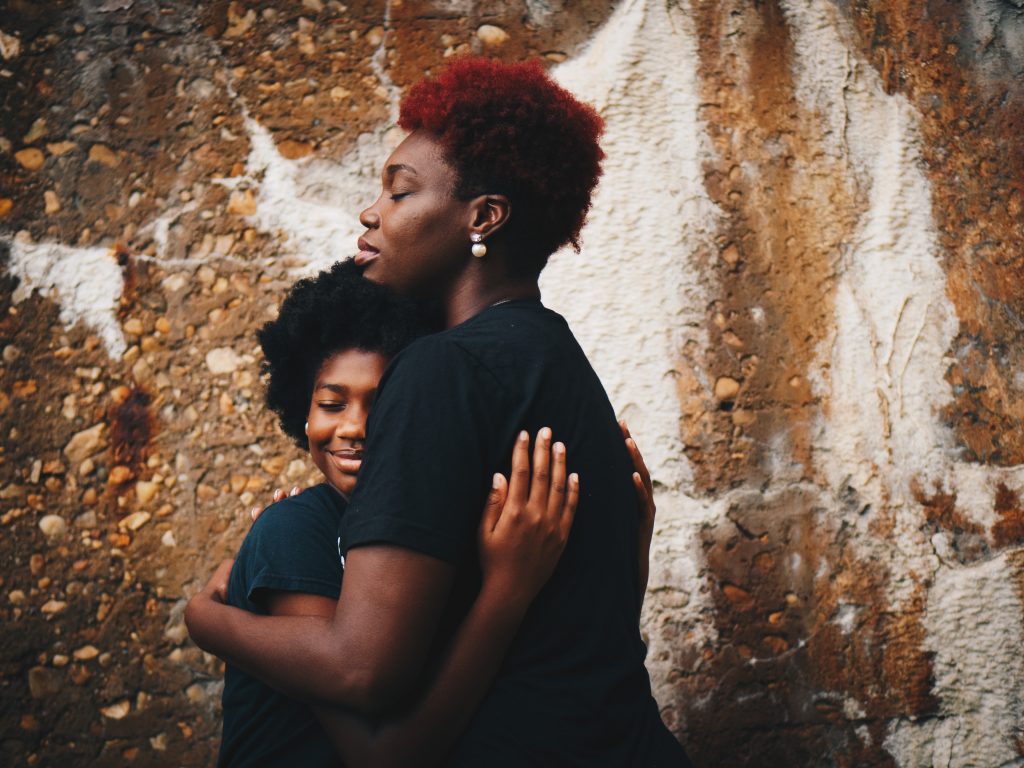Managing the Chronic Stress of Parenting during COVID




There’s a lot that I’m not intimidated by. While I’m naturally a bit introverted, I’ve worked hard to talk in front of groups fairly comfortably. I’m not scared of Atlanta’s parking garages, elevators, or boats (unlike certain family members). I don’t enjoy shopping, but I can hit up an Ikea and come out alive and well. In my therapy practice, I can comfortably help clients tackle sticky issues like challenging relationships, infertility, abortion, depression, grief, and trauma. But what puts fear in my heart?
The idea of being in counseling with my parents.
And I’m not the only one. Quite often when I’m working with a kid or teen, I mention that a few family counseling sessions might help with improving communication or clarifying expectations or figuring out how to respectfully disagree with one another. And then I watch those teens as their faces go from open and interested and curious (because after all, teens are awesome if you’re not their parents) to shut-down, please-Dana-don’t-make-me-you-must-be-crazy-if-you-think-I’ll-do-that.
And I get it. Family therapy can be intimidating. Kids worry they’re going to get teamed up on or lectured. Often they hate their parents seeing them emotional and would really rather not cry in front of their parents. Teens already recognize there’s a lot they don’t control in their lives, and family counseling can appear—at first—to be another place where they won’t have control or a voice.
And yet. And yet. Family counseling can be powerful: healing, reinforcing and strengthening relationships, shifting communication patterns to be more healthy and constructive, and building trust and mutual respect. Kids and teens find they have a voice and relax as they see their parents listening to them; parents find that their kids can hear them differently through family therapy. Together, we make strides to strengthen the family. Because at the end of the day, none of us lives in a vacuum. We’re all connected. So let’s work on being connected in healthy, happy ways… even if it’s intimidating at first.

Every time I do a presentation for parents of teens, two questions just about always come up:
AND…
2. What is the “right” thing to say to teens about drugs and alcohol?
The first question has an easy-ish answer: Despite (or because of) your kid’s idiosyncrasies, they will most likely make it through adolescence relatively unscathed and learn enough adulting skills to have a pretty reasonable life, even if their life, values, and priorities are different from yours. Most of us get through adolescence. If you’re reading this, I’m guessing you did.

But the second question is trickier. What is the “right” thing to say to teens about drugs and alcohol?
For starters, I’m pretty sure there is no one right thing. Teens (and the rest of us) are getting insane mixed messages about drugs, especially marijuana, right now. Some parents buy marijuana for their kids; some pull out a frying pan and an egg to give a 1980s-esque demonstration showing this is your brain on drugs. Some places it’s legal; some it’s not. Some people swear marijuana helps with anxiety, depression, creativity, and sleep; some people argue it interferes with all of the above as well as with brain development, makes ADHD and motivation worse, decreases efforts to build alternative coping strategies, and lowers the effectiveness of anti-depressants. It’s especially tricky when we consider how common marijuana use is among white people as well as people of color, and yet marijuana laws are so selectively enforced, with huge disparities in enforcement based on race. A black teen getting caught smoking marijuana may face drastically different legal consequences than a white teen doing the exact same thing. So how do you create rules or express family values when there are so many shifting cultural messages, and no coherent community principles or agreed-upon research to support, reinforce, or guide you? Not so easily.
But I think there’s an even more important question that’s even harder to answer. How do parents build a strong enough relationship with their teens to be able to talk about drugs and have the best chance of a positive impact? That’s the gazillion dollar question. And it has no simple answers… except maybe family counseling (which is of course my bias).
I loved this article and this follow up for their thoughtful discussions of these topics. Pro tip? Print the article and send it to your kid and ask them what they think about it. Sometimes introducing a topic through an article is a way to open up a conversation without defensiveness.
Summer is often a time that some kids and teenagers find relief from stress. Young people who find school challenging – either because of social stuff or academic work – often describe summer being a relief. Less is expected of them. They can give themselves permission to expect less of themselves.
But summer for the parents of recent grads and young adults is sometimes a different story. After all, the role of a parent of an adult child isn’t well defined. What does it look like to parent a 20-year-old during a summer spent at home? Once a young adult hits the magic age of 18 and is legally in charge of their own health and well-being, how should a parent proceed?
 Lots of people are trying to navigate this terrain in a way that respects the autonomy of their adult child while staying connected. Here are a few tips to help you figure out how to proceed:
Lots of people are trying to navigate this terrain in a way that respects the autonomy of their adult child while staying connected. Here are a few tips to help you figure out how to proceed:
It can also help for parents to figure out who they are and what they want to invest in, now that parenting is taking a different shape and perhaps less time. As your child launches, it’s an opportunity (for better or worse) to consider what you want now in your life. At the very least, such exploration can make it easier to tolerate worry about an adult child. At the very most, it can help you discover what’s next for you.
I read with sadness but not surprise this article about suicide on college campuses. A big question the article talks about is when and if parents should be informed if their age 18+ kid is struggling.
 I’ve written before about the rise in anxiety and depression in teens and the general public. The news on the subject continues to be disturbing, with a 33% rise in depression diagnoses between 2013-2016.
I’ve written before about the rise in anxiety and depression in teens and the general public. The news on the subject continues to be disturbing, with a 33% rise in depression diagnoses between 2013-2016.
I’m so glad that depression is continuing to be identified more quickly, and that more and more people are willing to seek help. But these numbers – and the stories behind these numbers – speak to a pretty terrifying moment for young adults and those who love them.
Anytime I work with a new client, we talk openly and honestly about confidentiality. Lots of us have had the terrible experience of having someone betray our trust and confidence, and I’m committed to keeping therapy a private space. It’s impossible to get the most out of counseling if we’re worried about someone out of the psychotherapy office knowing what we’re talking about.
BUT – I tell everyone – if I start getting worried about a client in an immediate life-or-death kind of way – I will tell that client directly, not going behind their back, and we’ll talk about if my concerns are justified or not. If so – if a client agrees they’re in a scary moment – together we’ll figure out a way to pull in someone from their life who cares about them, and loves them, and desperately wants and needs them alive.
I love being a therapist, and I take the responsibility of it incredibly seriously – both in figuring out when and how to support someone to get more help, if needed, and when to uphold and protect confidentiality if more support isn’t needed.

I haven’t seen the new reboot of Roseanne but grew up on the original series (along with so many other shows… I was permanently indented into my family’s couch for a few years there.) It’s been interesting to follow different reviews of the new version, including critiques of its social or political messaging and diversity as well as positive reviews (sometimes both from the same source).
But what’s been most interesting to me is what the show has already spurred – lists of other shows that may be worth watching for their depictions of “real” America and real families. I read this list with tons of interest: it includes shows I’ve heard of like Black-ish and Fresh off the Boat, and then others that my pop-culture-oblivious self had no idea about (like The Good Place and Speechless).
So why does this matter so much I’m posting about this? Because there’s often a link between what we watch and how we feel about ourselves and the world. When we consistently don’t see people who look like us on TV (as is the experience of most people of color), we get the message we don’t matter, and that our experience isn’t important. We begin to believe the lie that a “normal” exists and that we’re different in a bad way. Racism on TV shows can make us more racist too.
There’s also lots of research, of course, that shows that when we only see stick-thin actors with perfect skin, we compare ourselves negatively to those images. In these and other moments, these TV images can make us feel worse and more isolated instead of what good TV can do: make us feel more connected and empathetic, and even boost our emotional IQ.
So I’m putting Black-ish on my list, along with a handful of other shows. Maybe you will too.

The New York Times Magazine cover story this past week was about teens and anxiety. Yay!
And it’s not that I’m a sicko who takes pleasure from other people’s suffering.
Rather, it’s nice to see attention focused on what’s been obvious in my office: that many teens — delightful, smart, precocious, thoughtful teens — are really struggling in profound ways. Self-harm is one way that this struggle shows up. A struggle to get to school is another big way this shows up. And it puts parents in a huge bind over what to do.
Here’s what I want you to know. Anxiety is terrible, and the impulse is to avoid anxiety by avoiding what makes us anxious. But as this article mentions, avoidance generally makes things worse. What helps? Looking at and re-writing thoughts, coping skills for calming the body and mind, and practice showing up for things that feel scary — like school.

I have a love/hate relationship with the internet, but I’m all love for the world wide web when I see articles that aim to help adults talk to children about important issues like racism and violence. Unfortunately, this is a conversation that parents of color are used to having with their children. It’s time for white families to catch up.
At the bottom of this post are a few resources. And here are seven tips:
This article from the New York Times does a good job compiling book resources.
Local bookstore Charis has compiled a great list of books.
This article may be a helpful first-person perspective on talking with white children.
These last few weeks, I’ve seen kid and teen clients’ stress skyrocket as a result of mandatory statewide testing. It reminds me of my own days as a student in DeKalb County schools taking the Iowa Test of Basic Skills way back in the 1980s. You may have a similar memory of using #2 pencils to bubble in answer sheets or long hours of boredom c oupled with the pressure to do well. As far as I can tell, none of that has changed.
oupled with the pressure to do well. As far as I can tell, none of that has changed.
It’s easy to be sympathetic to these clients and their anxiety. Tests can be confusing, and often don’t reflect what my clients have learned throughout the school year. Multiple studies over decades have shown that race and socio-economic class can impact scores, raising significant doubts about validity.
And yet, even when these smart, savvy kids have this information, they still feel tremendous pressure to do well on these tests. For some, these test results make up a significant portion of their final grades in school. For some, their performance impacts eligibility for talented-and-gifted programs. For many, it’s easy to tie self-worth to scores — which means even more pressure to perform.
In my years counseling teens and kids, many parents have come to me saying, “my kid seems more irritable around testing time.” This is not a surprise. When we’re anxious and don’t feel a lot of control, that can come out as irritability or efforts to control other parts of our lives in constructive or not-so-constructive ways.
So here’s what I tell parents:
1. Recognize that your child is likely feeling anxiety and pressure. They may not tell you that they’re anxious, but you may be able to tell if your child is acting out more than usual. Any perceived pressure from you may feel like “too much” to them, since they’re already worried and negatively anticipating the test.
2. Help them prepare in practical ways (getting a good night sleep and eating a good breakfast beforehand). If their school allows books or other materials for in-between testing times, help them select something that will reduce boredom.
3. Reassure your child that you love them and that testing is much less important than other things (their character, perhaps, or their overall effort during the school year).
4. Make plans with your child to do something fun after testing is over.
And, thankfully, testing will be done soon!
 Last week, my email dinged with a message from a magazine writer asking for an interview. Hurrah! I thought. I love talking about therapy! But then I read closely. The writer wanted my expert tips on how parents should design their children’s rooms for optimal development, including the “right” kinds of toys. I felt my heart slowly sink back to it’s normal position in my chest. For while I love talking about counseling and kids, I hate doing anything to perpetuate parents’ anxiety that they’re not doing enough.
Last week, my email dinged with a message from a magazine writer asking for an interview. Hurrah! I thought. I love talking about therapy! But then I read closely. The writer wanted my expert tips on how parents should design their children’s rooms for optimal development, including the “right” kinds of toys. I felt my heart slowly sink back to it’s normal position in my chest. For while I love talking about counseling and kids, I hate doing anything to perpetuate parents’ anxiety that they’re not doing enough.
I laughed, thinking about my own kid’s room: a few pieces of used furniture; a motley assortment of stuffed animals (a few of whom have lost plastic eyeballs to our otherwise lovely dog), the usual assortment of kid-related clothing, and lots and lots of books. I’m pretty sure that if I had strong opinions about kids’ rooms, my own child’s room wouldn’t measure up. But the idea that kids only thrive in a very particular set of circumstances simply isn’t true.
So I ended up saying a big fat no to that interview request.
What’s in a kid’s room matters much less than who’s with that kid in life. Research supports that what matters most for healthy childhood development is the presence of caring, mostly-consistent adults, not the presence of particular toys in a certain sort of space.
Is this a missed opportunity for me to spread the good news about good therapy? Perhaps. But I’d rather miss out than spread misinformation and fan the flames of anxiety and guilt.